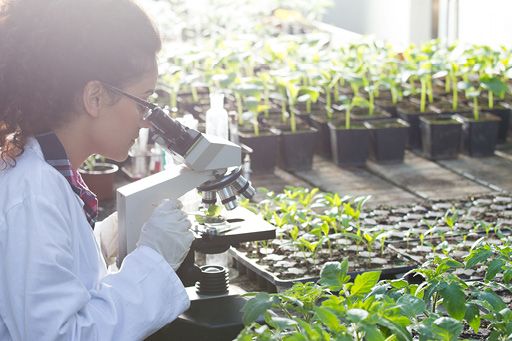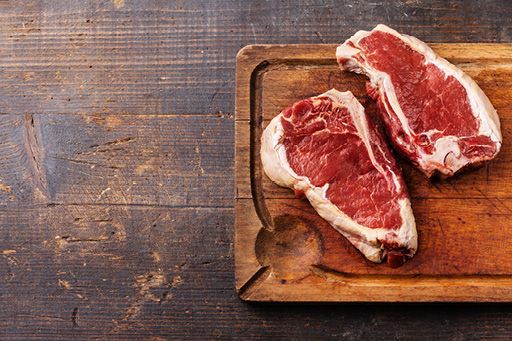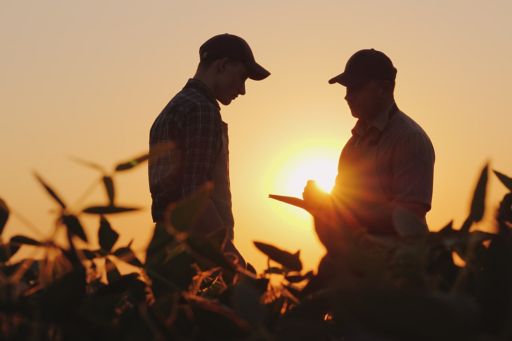Our Summer Break in Review
We’ve picked out some of the top stories from New Zealand and around the world over the past three weeks.
Domestically the 2021 stock numbers close with beef numbers up and sheep numbers down for another year, rural companies on the stock market make a strong start to 2022 and the European Union holds out agains New Zealand negotiators agreeing to only slight increases to post-brexit trade quotas for our primary exports.
Internationally we hear how Tiktok and tasty televisions may shape the future food system. Biotechnology innovation in health, nutrition and labelling also continues to modernise overseas as United States food labelling rules change for ‘bioengineered’ food at the same time as a nutritionally enhanced lettuce is designed in Israel through gene editing.
Field Notes Survey – Thank you
Our team would like to extend a thank you to those who took the time to complete our Field Notes survey at the end of 2021. The findings from this survey will be incorporated into the changes we integrate into Field Notes heading into 2022 and we look forward to continuing to engage with you throughout the year on this platform.
Previous issues
To read previous editions of Field Notes please click here.
Spotlight Stories
Research & Development Spotlight:

NZ scientists in 'game-changing' plant cloning discovery [07 January, NZ Herald]
New Zealand scientists recently discovered a new gene named PAR which allows natural reproduction by cloning plants, enabling highly desirable features to be passed down from generation to generation rather than being lost when plants reproduce via pollination. Plant of Food Research scientist Dr Ross Bicknell said, "for subsistence farmers in particular, this would be revolutionary. Instead of always having to buy seed, they would now be able to save their own and use it to grow plants with the same elite characteristics year on year without losing quality.”
Tag: Research & Development, Biotechnology
International Spotlight:

Why the metaverse will matter to the food industry in 2022 and other megatrends to watch [07 January, Food Navigator]
Based on a survey of around 15,000 consumers globally, the latest Future Consumer Index from EY has identified the key megatrends that will shape the way food companies operate. These include the need for food companies to adapt to quickly accelerating digital behaviours, the need to change the way food brands engage with customers, a renewed focus on health and wellness, and changing ways of working and living. Analysts believe the metaverse has the potential to disrupt “almost everything in human life that has not yet already been disrupted.”
Tag: International, Technology & innovation
This Week's Headlines

Tasty TV: Japanese professor creates flavourful screen [24 December, Reuters]
Meiji University professor Homei Miyashita has developed a prototype lickable TV screen, called Taste the TV, that can imitate food flavours by using a carousel of 10 flavour canisters which spray in combination to create the taste of a particular food. Miyashita said it is a step towards creating a multi-sensory viewing experience and that his “goal is to make it possible for people to have the experience of something like eating at a restaurant on the other side of the world, even while staying at home.”
Tag: International, Research & Development, Food Innovation

Silver Fern Farms to join a handful of Kiwi companies offering carbon-zero products [09 January, Stuff]
This month, Silver Fern Farms will introduce its first carbon-zero certified beef in the United States, joining a small group of New Zealand food and beverage companies who have committed to reducing their carbon footprint through Toitū Envirocare's internationally accredited programme. Otago University Associate Professor Sara Walton expects more companies to seek carbon-zero certification for their products in the future, and she adds that reducing the impact of each product is key to addressing climate change, rather than offsetting it.
Tag: Red Meat, Environment & Emissions, Food Marketing

The Viral TikTok Recipes Causing Food Shortages [14 December, Eater]
Viral food trends on TikTok have caused supply chain issues on the already disrupted supply chain affected by the pandemic. James R. Bradley, professor of operations management and information technology says he’s sceptical that most individual TikTok trends will have lasting effects, though chains are learning how to compensate for supply issues in real-time. Ingredients that were affected the most include Kewpie mayo, feta cheese, Mertinelli’s apple juice and Ocean Spray Cran-Raspberry juice due to the various Tiktok trends.
Tag: International, Food Marketing
Top stories
Beef cattle numbers increase in 2021 [24 December, Stuff]
According to Stats NZ, beef cattle numbers increased to 4 million, a 142,000 increase from last year, while sheep numbers dropped slightly. “The total number of beef cattle was at a historical low in 2016, however it’s been increasing and is now up by 492,000, or 14%, since that time,” agricultural production statistics manager Ana Krpo said. Beef + LNZ chief economist Andrew Burtt adds that while cattle numbers were up, this was partially due to some South Island farmers rebuilding stock after drought.
Tag: Farming Systems, Red Meat, Farmers & Producers
Landcorp should return focus to pastoral farming, report says [23 December, Stuff]
Landcorp Farming, rebranded as Pāmu, has been criticised in a report by James Morrison Consulting for overestimating revenue growth and underestimating the risks involved in its shift towards developing higher value niche products. The consulting firm continues to say that it should be “seeking excellence in pastoral farming,” which was the main economic engine for the business. The report noted that it had not met any of its 2017 business case targets, had high overheads, cost the business NZ$4.6 million by 2019, wrote down milk powders by $3.76m in 2019 which were sold as stock food, and changed its model from sales to consumers to contract manufacturing for businesses.
Tag: Agribusiness, Farming Systems
EU-NZ agree on post-Brexit trade quotas [11 January, Farmers Weekly]
A week before Christmas, a middle-ranking trade official at the European Commission announced NZ has agreed to drop its World Trade Organisation complaint against the EU in exchange for minor quota increases for some agricultural exports. The details of the quota increases were not disclosed but it is understood the agreement increases the maximum annual amount of sheepmeat NZ can export to the EU without incurring tariffs from 114,000 tonnes to 138,000 tonnes. The new quotas were reportedly allocated based on new three-year trade reference periods nominated by NZ negotiators.
Tag: Trade & Exports, Policy and Regulation
Launch of new social enterprise set to boost sustainably sourced wool sales [05 January, Rural News Group]
The launch of a new tech start-up and social enterprise “Comfi” aims to significantly boost New Zealand's sustainably sourced wool sales through its pocket spring mattresses. Co-founder Vicki Eriksen says they pay over twice the market rate for the single-sourced wool to help support local farmers and aim to reach a point where they can donate a child’s pocket spring mattress and bed for every one that is purchased. She adds that they “offer a 100-night rest easy” trial, a ten-year warranty and a competitive price.
Tag: Wool
Out of stock: Food and agribusiness analysts expect more disruptions in 2022 [05 January, Food Navigator]
Rabobank predicts supply chain disruptions will continue in 2022 due to a combination of strong global retail demand and imbalances in container distribution. Xinnan Li, F&A supply chains analyst expects high rates and low reliability to challenge the market over the next six to 12 months despite logistic operators’ best effort to restore normalcy to global supply chains. Rabobank recommends “supply chain transparency, early planning and, more specifically, securing containers with contracts to avoid significant price fluctuations.”
Tag: International, Trade & Exports, Covid-19
NHS Food Scanner app will use barcodes to suggest healthier eating choices [10 January, The Guardian]
The UK government has launched the NHS Food Scanner app that scans selected shopping items and suggests alternatives with less saturated fat, sugar or salt to tackle the country’s child obesity crisis. It follows recent data which suggests one in four children of reception school age are overweight or obese and this rises to four in 10 in Year 6. The Department of Health and Social Care chief nutritionist Alison Tedstone said, “the NHS Food Scanner App is a great tool to help families make quick and easy healthier swaps.”
Tag: International, Health & Nutrition
Global food prices rose ‘sharply’ during 2021 [06 January, United Nations News]
According to the Food and Agriculture Organisation, the United Nation’s benchmark food and commodity prices index rose 28.1% on average through 2021, compared with the previous year. FAO Senior Economist Abdolreza Abbassian says that high prices are often expected to ease as production increases to match demand. However, the consistently high cost of inputs, the ongoing global pandemic and the increasingly volatile climatic conditions “leave little room for optimism about a return to more stable market conditions even in 2022,” he said.
Tag: International, Food Security
GMO is out, 'bioengineered' is in, as new U.S. food labeling rules take effect [05 January, NPR]
US consumers will begin to see labels on some foods that say "bioengineered" or "derived from bioengineering," replacing the former patchwork of state-level requirements. This is an attempt to give people more information about what they eat and standardise labels across the country. However, one advocacy sued the U.S Department of Agriculture to try to block the new regulations from taking effect as they say it makes it easier for companies to conceal what's in their products and leaves consumers in the dark.
Tag: International, Biotechnology, Policy and Regulation
Morrisons to scrap 'use by' dates on milk to help reduce food waste [10 January, Sky News]
From the end of January, supermarket chain Morrisons will no longer feature a “use by” date on most of its milk in hopes of stopping millions of its pints from being thrown away each year. Morrisons will instead encourage customers to use a sniff test to check quality as research shows it can be used days after the date. The recycling charity Wrap said milk is the third most wasted food and drink product in the UK, after potatoes and bread, with around 490 million pints tipped away every year.
Tag: International, Food waste, Dairy
Nutritionally charged lettuce developed with CRISPR/Cas gene editing tech [04 January, Food Navigator]
A scientist in Israel Yarin Livneh, has leveraged gene-editing technology CRISPR/cas to “trick” lettuce into producing more nutrients in higher quantities. She says she edited “existing genes in a way that could spontaneously occur in nature or when using traditional breeding methods.” Despite gene editing restrictions across global markets, Livneh is “very” optimistic for commercialisation potential as the UK recently approved field studies for genetically edited crops and a CRISPR-edited, nutrient-enhanced tomato has just entered the Japanese food market.
Tag: International, Biotechnology, Research & Development
Rural companies begin 2022 strongly [12 January, Farmers Weekly]
Rural companies such as PGG Wrightson, Seeka, and Skellerup have all started 2022 strongly with PGG Wrightson’s share price increasing by nearly 20%, Seeka estimating NZ$22 million to $24m in net profit and Skellerup expecting net profit in the first half of 2022 to be 10% better than the previous corresponding period. Among the poorer performers is Delegat Group with a lower profit expectation between $4m and $7m. Also, the a2 Milk Company and part-supplier Synlait will look to 2022 for performance recovery as their share prices fell by 50% and 30% respectively during 2021.
Tag: Agribusiness
Report trumpets scope for ice cream exports [12 January, Rural News Group]
Economic Development Minister Stuart Nash has released a report for the Food and Beverage Information Project suggesting that ice cream exporters could find new buyers in valuable overseas markets, potentially following the global success of premium wine and honey exports. Nash says NZ ice cream manufacturers are well-positioned to benefit from major global trends in the food and beverage sector, such as the concern about wellness and lifestyle, awareness of where food comes from and how it is produced, and a wish to indulge in products that are more than the bare necessities.
Tag: Trade & Exports, Food Marketing, Food Innovation
Get in touch
| Audit – Auckland Ian Proudfoot 09 367 5882 iproudfoot@kpmg.co.nz |
Management Consulting – Wellington Justine Fitzmaurice 04 816 4845 jfitzmaurice@kpmg.co.nz |
Agri-Food – Auckland Jack Keeys 09 363 3502 jkeeys@kpmg.co.nz |
Private Enterprise – Hamilton Hamish McDonald 07 858 6519 hamishmcdonald@kpmg.co.nz |
| Agri-Food – Auckland Andrew Watene 09 367 5969 awatene@kpmg.co.nz |
Consultant – South Island Genevieve Steven 03 307 0761 gsteven@kpmg.co.nz |
Farm Enterprise – South Island |
Field Notes Administrator |




